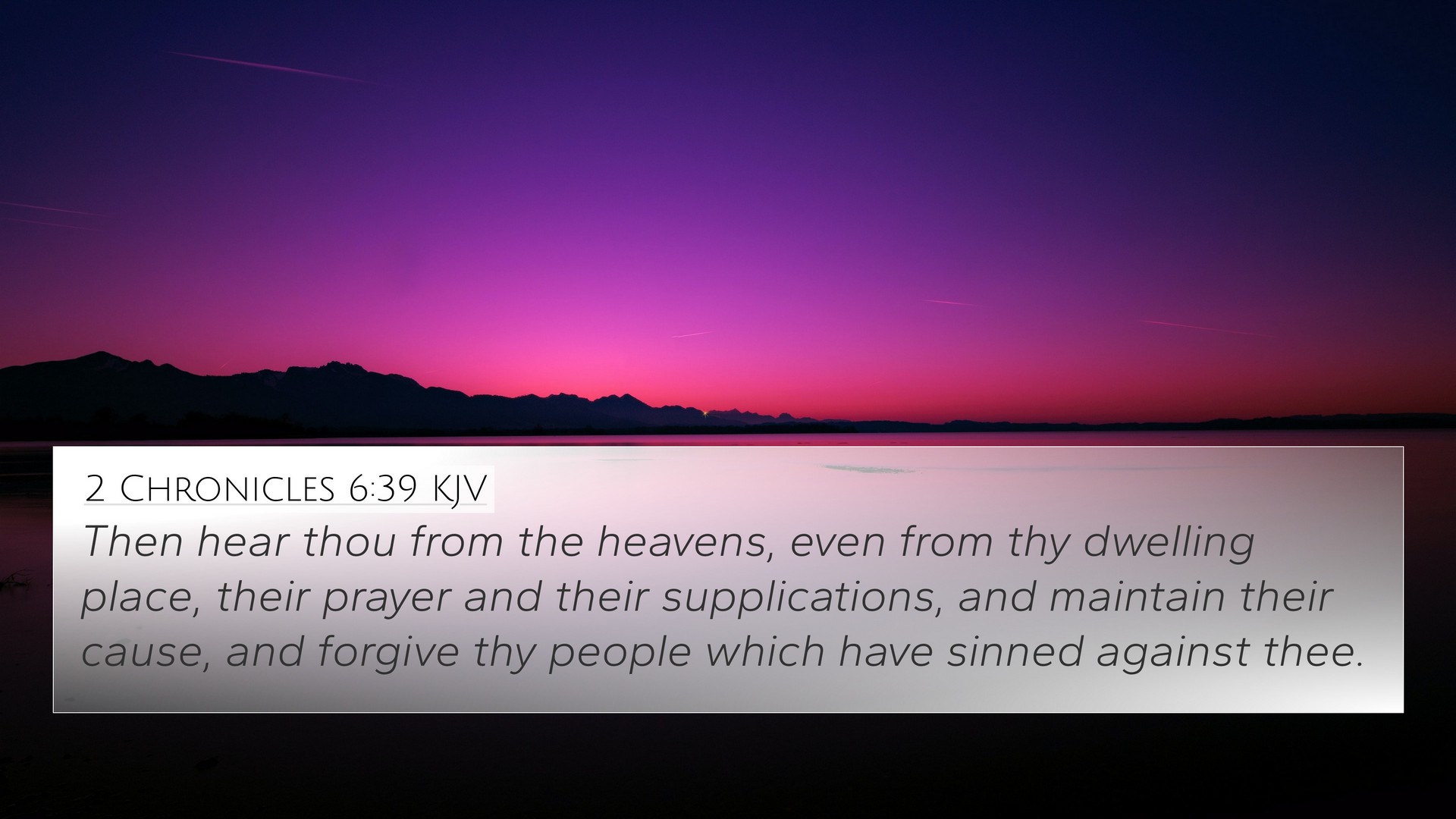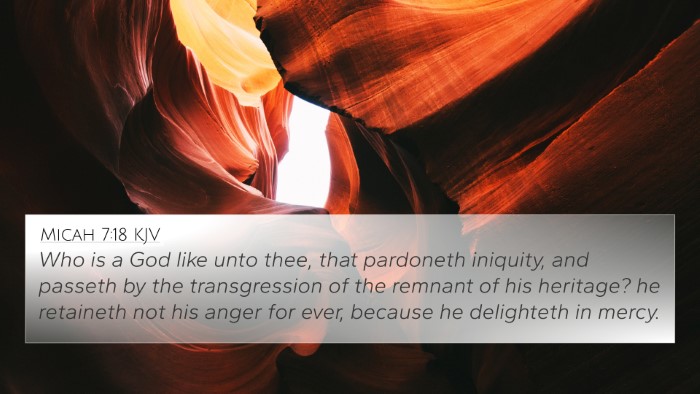Understanding 2 Chronicles 6:39
Verse: 2 Chronicles 6:39
"Then hear thou from the heavens, even from thy dwelling place, their prayer and their supplications, and maintain their cause, and forgive thy people which have sinned against thee."
Summary of the Verse
This verse captures Solomon's prayer during the dedication of the temple, focusing on God's promise to hear the prayers of His people when they turn to Him. It highlights themes of intercession, divine forgiveness, and God's attentive nature to the cries of the faithful.
Insights from Commentaries
Matthew Henry's Commentary
Matthew Henry emphasizes the importance of prayer as a means of communication between God and His people. He notes that God's willingness to hear and forgive is contingent upon the sincerity of the supplicants. Henry draws attention to the assurance given to Israel that God would respond to their heartfelt prayers offered in the temple, highlighting the temple as a sacred space for divine encounters.
Albert Barnes' Notes
Albert Barnes provides an interpretation that underscores the relationship between sin and the necessity of repentance. He stresses that the prayer offered in the temple should come from genuine contrition and calls upon God to not only hear the prayers but also to act upon them with the grace of forgiveness. Barnes connects this verse with the covenant relationship established between God and Israel, emphasizing God's mercy toward His people in times of distress.
Adam Clarke's Commentary
Adam Clarke further elaborates on the significance of God's dwelling place being in heaven, indicating that while He is accessible, He remains sovereign and transcendent. Clarke notes the critical nature of supplication, as he interprets "maintain their cause" as God's intervention on behalf of His people. He also reflects on the overarching themes of redemption and divine intercession prevalent in the Old Testament narrative, fostering a deeper connection to the New Testament's portrayal of Christ as the ultimate intercessor.
Bible Cross-References
- 1 Kings 8:30: A parallel passage detailing Solomon's prayer during the temple dedication.
- 2 Chronicles 7:14: God's promise to hear from heaven if His people humble themselves and pray.
- Psalms 130:3-4: The theme of seeking God's forgiveness resonates with the sentiments expressed in this verse.
- Isaiah 53:6: Reflects the concept of all having sinned and the need for forgiveness.
- 1 John 1:9: Relates to the assurance of forgiveness if we confess our sins.
- James 5:16: Encouragement to prayer and confession, correlating with the theme of intercession.
- Acts 3:19: The call for repentance aligns with the request for forgiveness in 2 Chronicles.
- Hebrews 4:16: Invites believers to approach God's throne of grace with confidence, linking prayer with divine grace.
- Luke 18:13-14: The story of the tax collector emphasizes humility in asking for God's mercy.
- Romans 10:1: Paul's passionate prayer for Israel as a representation of intercessory prayer.
Conclusion
2 Chronicles 6:39 serves as a profound reminder of God's responsiveness to the prayers of His people. It highlights the mercy and forgiveness available through sincere repentance, illustrating a key aspect of the covenant relationship God maintains with Israel. The insights drawn from respected commentaries allow for a deeper understanding of intercessory prayer and its implications for both the Old and New Testament contexts. Engaging with related scripture through cross-referencing enhances our grasp of biblical themes and aids in the holistic study of the word of God.
Further Study
For those seeking to deepen their understanding of biblical texts, tools for Bible cross-referencing such as a Bible concordance or a cross-reference guide can be invaluable. These resources facilitate exploring connections between Bible verses, enabling a richer study experience.






